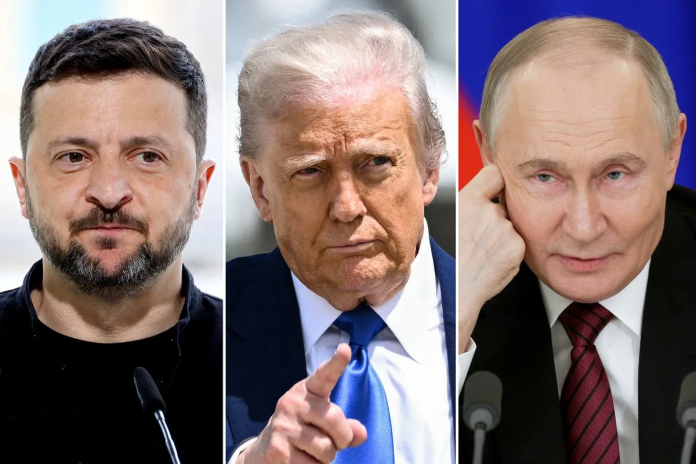Delegations from Ukraine and Russia are meeting in Istanbul on Thursday for their first direct peace talks since the early months of the war in Ukraine in 2022.
The negotiations, hosted by Turkey, aim to explore pathways to end the war, though the absence of both Russian President Vladimir Putin and US President Donald Trump cast doubt on immediate breakthroughs.
The Russian delegation, led by presidential adviser Vladimir Medinsky, includes Deputy Foreign Minister Mikhail Galuzin, Military Intelligence Director Igor Kostyukov, and Deputy Defence Minister Alexander Fomin.
Ukrainian President Volodymyr Zelensky, who met Turkish President Recep Tayyip Erdoğan in Ankara earlier today, has repeatedly stated he will not negotiate with lower-level Russian officials unless Putin attends. However, Russia rejected his proposal, referring to a Ukrainian decree banning direct talks with Putin.
Zelensky later claimed that the document he had signed applied to all Ukrainian officials except himself, causing widespread confusion.
The US, meanwhile, opted for diplomatic engagement rather than presidential involvement. Secretary of State Marco Rubio arrived in Turkey on 14 May, meeting Ukraine’s Foreign Minister Andrii Sybiha, while Trump’s envoys, Steve Witkoff and Keith Kellogg, are expected to observe the talks. Trump had initially floated attending but ultimately declined, citing his Middle East tour.
NATO Secretary General Mark Rutte described the next two weeks as a “window of opportunity” for progress, calling for unity. Meanwhile, Germany’s Chancellor Friedrich Merz warned against allowing a “peace” favourable to Moscow.
Kyiv insists any agreement must address territorial integrity, whereas Moscow has dismissed Ukraine’s ceasefire proposal, demanding negotiations precede truce terms.
Analysts note the symbolic significance of Istanbul, where failed 2022 talks occurred. While hopes for a swift resolution remain low, the mere resumption of dialogue marks a shift after years of deadlock.
